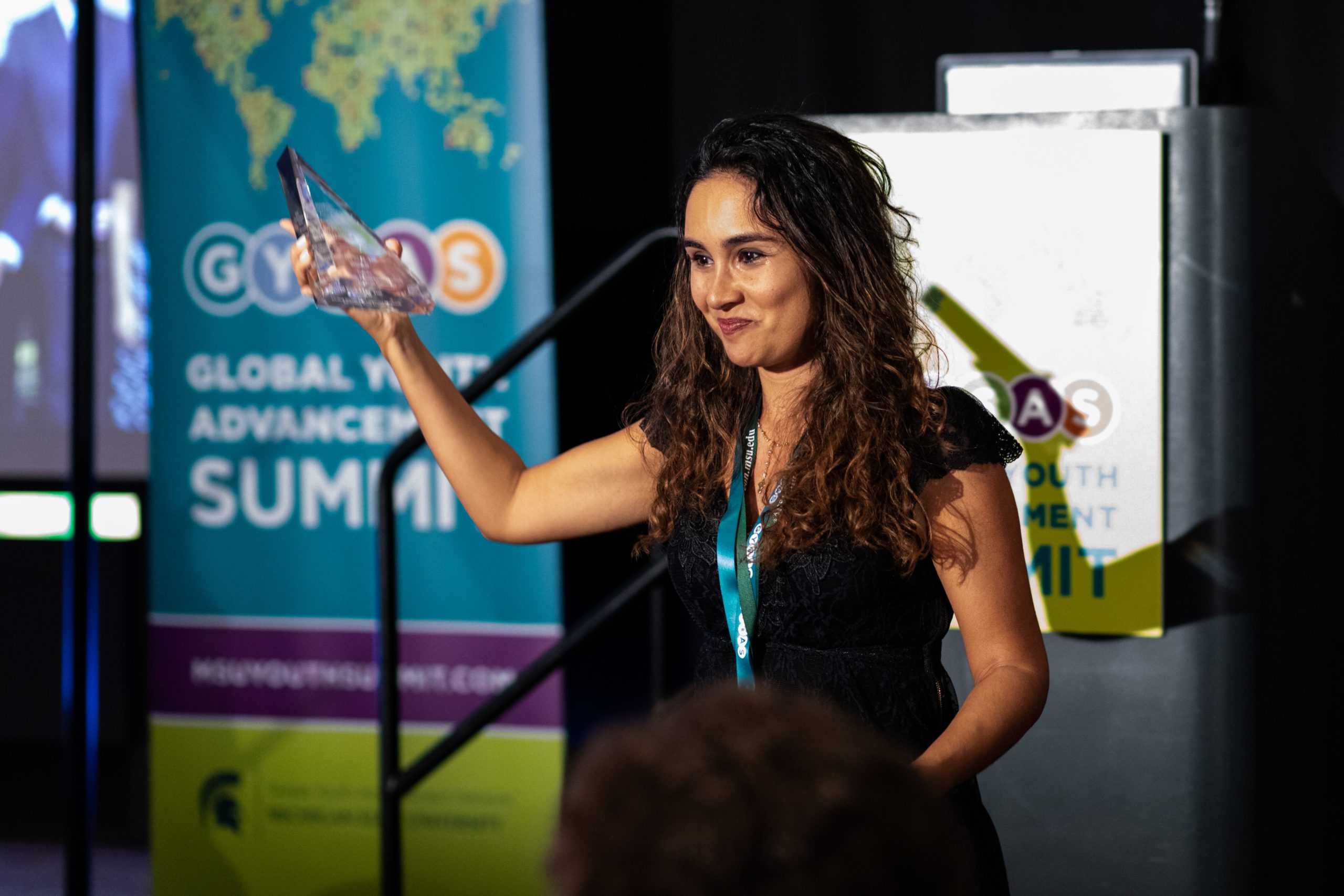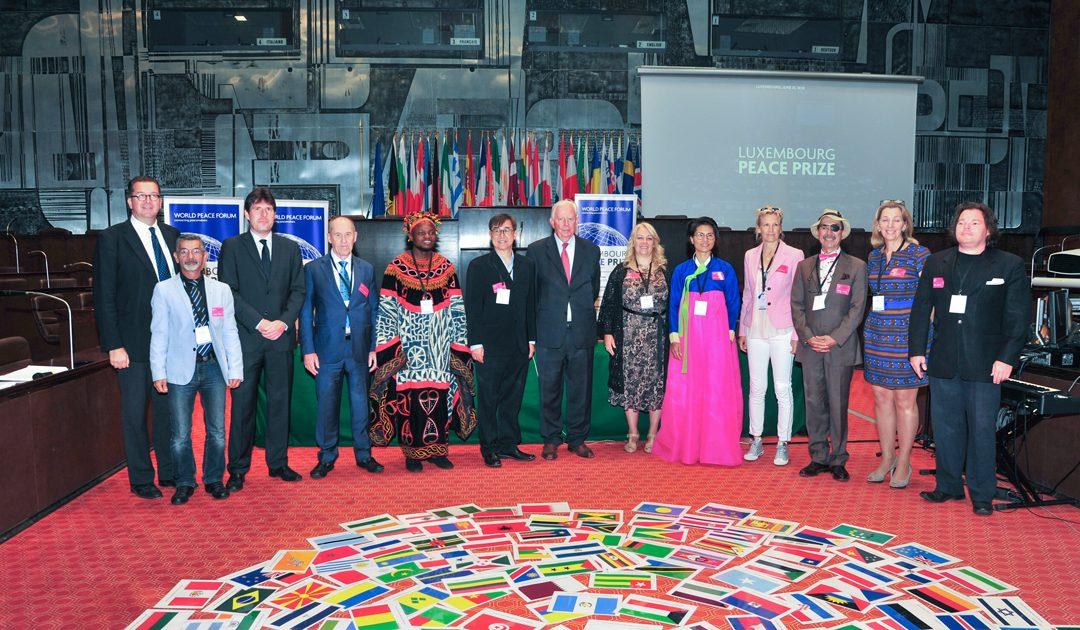RIO DE JANEIRO, BRAZIL – Journalist Beatriz Buarque was surprised to receive the news that the non-governmental organization (NGO) Words Heal the World had been chosen the Best Organization for Peace by the Luxembourg World Peace Forum. The NGO, founded by Beatriz in 2018 in the United Kingdom, trains youths to develop strategies to deconstruct hate speech and extremism in Brazil and the world.

Born in Duque de Caxias, in Baixada Fluminense, Beatriz learned that the NGO had been chosen in December 2019, but the official announcement of the winners’ names was only published in late May.
The NGO has been registered in the UK for two years, where Beatriz took her master’s degree in international relations and now holds a doctorate in politics. “It was a wonderful surprise because we have produced a great deal of content to fight hatred. And with no sponsorship. So to receive this award with such a short time in existence and with no sponsorship is truly an indication that the work we have been doing is having an impact”, said the journalist.
Given the novel coronavirus pandemic, the award ceremony, which was scheduled for May 27th, was deferred to May 28th, 2021, in Luxembourg.
Volunteering
The NGO works with a team of over 40 volunteers. “The heart of Words Heal are young students, mostly in journalism. We also have some literature, graphic design students, but most are students of journalism from Brazil, Argentina, Mexico, and the UK. Because I am a journalism major, I empower these students, I empower them to deconstruct these hatred messages,” explained Beatriz.
In her opinion, one of the major issues in Brazil concerns Afro-Brazilian religions, which have been the subject of prejudice and attacks. “It is a very serious problem, which has racism at its core.” Beatriz stresses that extremism is not only ideological, such as fascism or Nazism, but also when an individual stigmatizes another because of color or religion and treats them as being inferior. “That’s also extremism, because you reach the extreme, considering others inferior, attacking them verbally or physically.”

Deconstructing myths
The researcher said that the Words Heal the World organization is producing a movie, titled ‘Santos Silenciados’ (Silenced Saints). The work, which is being completed, deconstructs the myths behind the prejudices against Afro-Brazilian religions, which many Western religions consider demonic or that kill animals for cruelty. “Since colonialism, people have evolved with these myths and have not been made aware that this is not true. So we need to do some peace education work. And that’s what we do.”
The documentary is being produced in partnership with students from the Federal University of Rio de Janeiro (UFRJ).
The NGO founded by Beatriz was responsible for the first Hate Map, released last year, with numbers of racially, religiously, gender or sexually motivated crimes in the country. “I consider the Hate Map a very valuable work because in Brazil we don’t have a document that shows the amount of official crimes and hate crimes”.
According to Beatriz, hate crime is a concept still little addressed in Brazil, and many police stations record religious intolerance, for instance, as a racial crime and not as a hate crime. She said that the map exposed this issue and showed a glaring number of hate crimes in Brazil.
The NGO is currently preparing the document’s second edition, based on official data collected by the Security Secretariats last year, although it has no sponsorship to produce a printed version.
Beatriz emphasizes that one cannot fight something that is not known. “We know that there is a serious problem with homophobia in the country, we know that the Afro-Brazilian religions have been attacked, but the extent of the problem is not there”. Consequently, she considers the map crucial for groups fighting for civil freedom, racial and gender equality to use this document as a tool to bring about change in Brazil’s public policies.
Global action
The deconstruction of hate speech has a global focus, not only in Brazil, stresses Beatriz. “It is a global issue, and we have developed campaigns, strategies to fight different types of extremism in the world.”
In its film ‘Behind the Scarf’, the NGO deconstructed the concept that Muslim women are submissive, have no voice, and are forced to wear headscarves. Beatriz accepts that headscarves are compulsory and oppressive in some countries, although they are not a reality in the majority of Muslim countries. “In the vast majority, women wear headscarves by choice. It’s just another myth that has emerged over time,” says the researcher. She points out another myth, according to which the Muslim religion is violent and associated with terrorism, and says that in an interview with a Muslim in the United Kingdom she “broke” that belief.
Beatriz, who still lives in the United Kingdom, stresses that the actions developed by her NGO in Brazil and around the world focus on different types of extremism. According to the researcher, there are many other NGOs developing content to fight hate and extremism in Europe and the United States, where “its presence is growing”. However, in Brazil this is still in its infancy, she said.
According to the journalist, the only NGO in Brazil that actually produces content to fight hate speech and extremism is Words Heal the World. “There are other NGOs working to promote empathy, peace, social equality, justice and the fight against racism. There’s all that, but we’re working in a specific niche of the fight against hate and extremism. For Words Heal the World, racism, homophobia, xenophobia, religious intolerance are all extremism. And it’s important to use that word [hate] because it hurts the ear.”
The fact that youths are working to deconstruct hate speech was a differential that weighed heavily for the awarding of the NGO by the World Peace Forum in Luxembourg.
Source: Agência Brasil

